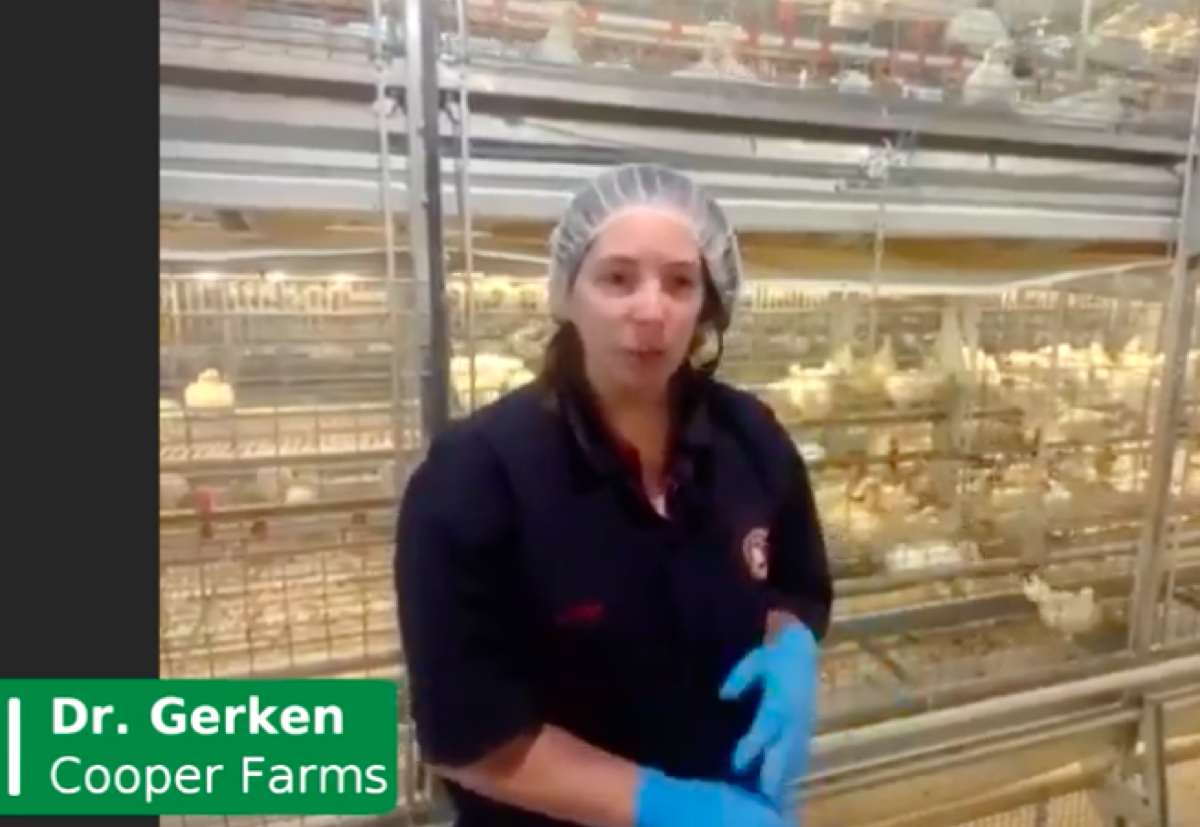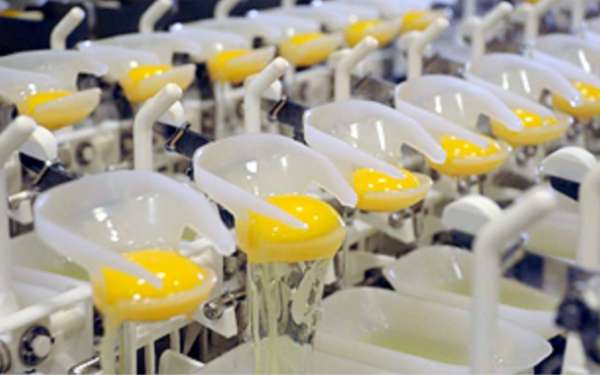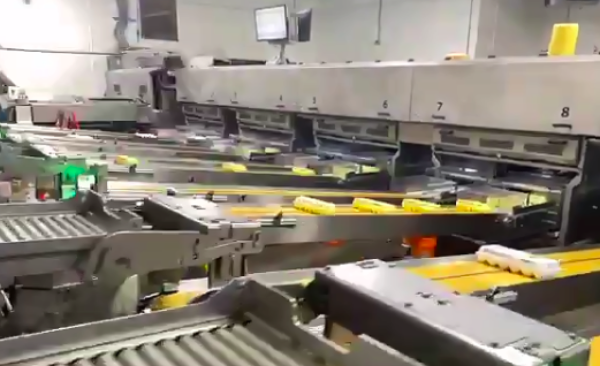
How can we keep harmful diseases and germs away from poultry? The latest Chickenology virtual field trip visited Cooper Farms to learn from an expert! The event was sponsored by Ohio Poultry Association, GrowNextGen, and Cooper Farms.
Cooper Farms veterinarian Dr. Elise Gerken works to keep the birds at the farm healthy. She spoke to the online audience about biosecurity measures that prevent the introduction of disease or pathogens. Even a small amount of material—the size of a dime—can spread high-path avian influenza.

These measures include protective clothing for every person entering the barns: boots, gloves, coveralls and headgear. Gerken demonstrated how she puts on these items each time she goes to a different farm.
Disease causing viruses and bacteria can be transported from one flock to another on bird-transporting equipment, trucks, tractors and other farm equipment as well as egg flats and cases. All equipment must be cleaned and disinfected before returning to their facilities.

Wild birds, rodents, and insects can carry disease, so they must be protected against. Wood shavings for bedding and manure are managed appropriately, and food and water are carefully monitored.

Eaton High School teacher and GrowNextGen teacher leader Amy Kochensparger watched this biosecurity virtual field trip with one of her biology classes. “We loved it!” Kochensparger said. “So much science and information connecting us to our food and food safety! My students were really into seeing all of the protocols and hearing how to stop disease spread. I learned a lot about how the chickens are maintained in a large facility. It was a great experience. Thanks for hosting this event!”
Poultry is a major industry in Ohio, so bird health is important! Join us at a ChickQuest workshop for elementary teachers or a Chickenology workshop for middle/high school teachers to learn more.




Share this